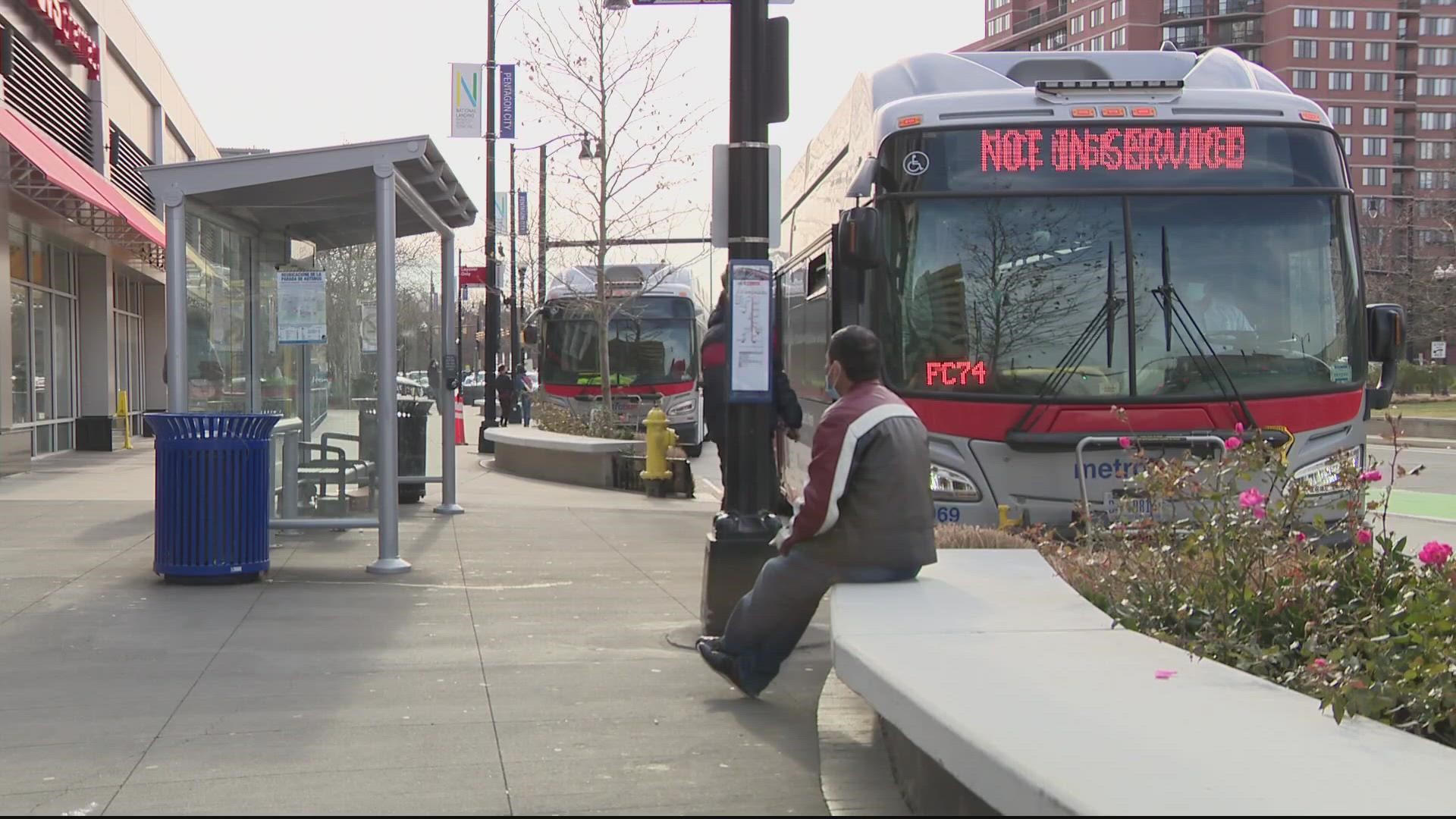WASHINGTON — D.C. and Washington Metropolitan Area Transit Authority (WMATA) leaders have approved a plan to crack down on drivers using Metrobus lanes. Board members voted in favor of the project during a Friday meeting
Under the Clear Lanes initiative, 140 of D.C.'s Metrobuses on 31 routes that run along bus-only lanes will be equipped with automated cameras facing out from the windshield. Those cameras will take photos of vehicles that drive, park or stop in bus lanes, and record license plates of those violators. Then the owner of the vehicle would receive a $200 ticket in the mail.
Encrypted video and photos from the automated cameras will be sent via cellular directly to the District which will handle the review, issue citations and collect fines. Metro will not review or have access to the encrypted video footage, Metro said in a press release.
D.C. and WMATA will partner to pay for the program. Metro is paying $4.6 million for the cameras, installation and integration into the District's traffic enforcement program. D.C. is pitching in $3.1 million.
The program is expected to improve service for about two out of every three Metrobus customers in the District, the majority of whom do not own a car.
"For people to use buses, we need them to be faster and more reliable. That can't happen if cars are blocking the bus lanes that are supposed to keep buses moving," said Metro General Manager and Chief Executive Officer Randy Clarke. "Bus stop zones are equally important to keep clear so that buses can pull up to the curb so customers of all abilities have a safe way to board or exit."
Metro is in the process of installing the cameras and expects to complete testing sometime this summer when a warning period would begin followed by citations starting sometime in the fall. Metro does not receive any funds from citations.
Metro has contract options to expand the technology to as many as 600 buses over 10 years, according to transit officials.
The program is limited to the District. Metro is exploring the possibility of expanding the program; however, additional legislation is required before similar programs could be implemented in Maryland and Virginia.
The bus cameras are part of a larger overhaul of Metro's bus system.
Starting Monday, April 17 through Monday, June 5, Metro will host community-focused events across the region and launch an interactive website where customers can explore the reimagined bus network and provide input.
The Better Bus "Experience LIVE!" will include in-person workshops, community pop-up events, and virtual "lunch and learns." The virtual "Experience LAB" will also offer people an interactive tool that enables customers to compare their trip today to their routes in the draft Visionary Network, as well as a map library to explore route profiles and the network as a whole.
"We want to create a bus network that is easier for customers to use, more efficient, and aligned with where and when people want to travel," said Metro Board Chair Paul C. Smedberg in a press statement. "We want people to take the bus because it's the best, most reliable and sustainable option. The draft Visionary Network is the first step to getting there and creating a more equitable transit network."
The bus network envisioned under the draft proposal includes expanding the high frequency service network from 36 routes to approximately 100 routes that would operate every 20 minutes or less, regional 24-hour bus service, more routes operating seven days a week, and more direct connections to where customers want to go. The draft Visionary Network provides a long-term roadmap to create the bus network the region needs.
"We are committed to providing fast, frequent, and reliable service that is a quality experience for our customers and operators," said General Manager and Chief Executive Officer Randy Clarke. "Our region needs a network that matches when and where people want to travel, addresses inequities, and gets more people on buses and out of cars providing environmental benefits to the region."
Under the draft Visionary Network, more people would have access to more bus service, seven days a week, 24-hours a day including:
- 73% more people with access to high-frequency bus service on Saturdays
- 64% more people with access to high-frequency bus service on Sundays
- 123,000 and 208,000 more residents on Saturdays and Sundays will have bus service
- 1.1 million residents across the region will have 24-hour bus service; 307,000 more will have late-night bus service (10 p.m. to 2 a.m.)
For more information and to participate in the Better Bus Experience LAB or Experience LIVE!, please visit wmata.com/betterbus.

